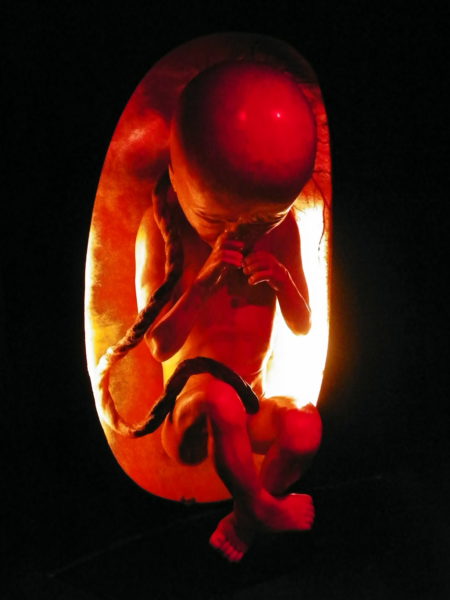
In the ongoing debate about abortion and personhood, the criteria for defining who counts as a person is crucial.
Mary Anne Warren’s1 Mary Anne Warren was an American philosopher and professor renowned for her work in moral philosophy, particularly in the field of bioethics. She earned her Ph.D. in Philosophy from Harvard University. ‘five traits of personhood’—consciousness, reasoning ability, self-motivated activity, communicative capacity, and self-awareness—provide a framework that some use to argue for the permissibility of abortion. However, Christopher Kaczor,2Christopher Kaczor is an American philosopher and professor specializing in ethics, philosophy of religion, and bioethics. He earned his Ph.D. from the University of Notre Dame and has held academic positions at various institutions, including Loyola Marymount University. in his book “The Ethics of Abortion: Women’s Rights, Human Life, and the Question of Justice,” offers a compelling critique of this framework, exposing its significant moral and logical flaws.
1. Consciousness and Self-Awareness: Not All or Nothing
Warren’s first two traits, consciousness and self-awareness, suggest that only beings who are aware of their existence and can perceive their environment are persons. Kaczor points out that many human adults, such as those in a comatose state or suffering from severe cognitive impairments, would fail to meet this criterion. These individuals lack self-awareness and, at times, even basic consciousness. If we accept Warren’s criteria, we would be forced to conclude that these individuals are not persons, which is a morally untenable position.
2. Reasoning Ability: Excluding the Vulnerable
The requirement of reasoning ability further complicates the definition of personhood. Many adults with severe intellectual disabilities or those experiencing advanced dementia cannot engage in complex reasoning. According to Warren’s criteria, these individuals would also be excluded from personhood. Kaczor argues that this exclusion is ethically problematic as it devalues the lives of individuals based on their cognitive abilities, rather than their inherent human dignity.
3. Self-Motivated Activity and Communicative Capacity: Unrealistic Benchmarks
Self-motivated activity and communicative capacity are traits that not all humans possess at all times. For instance, infants, who are undeniably human, do not yet exhibit significant self-motivated activity or sophisticated communicative capacity. Similarly, individuals with severe neurological conditions may lose these capacities. Kaczor highlights that defining personhood based on these traits is flawed as it fails to account for the inherent value of these individuals’ lives.
4. The Arbitrary Nature of Birth as a Marker
Warren and others often argue that birth marks the beginning of personhood because it is the point at which a fetus gains independence from the mother. Kaczor critiques this view by noting that the transition from the womb to the outside world does not suddenly endow a fetus with new capacities that confer personhood. The developmental changes that occur at birth are gradual, not instantaneous, making birth an arbitrary and insufficient marker for personhood.
5. The Dangers of Functional Definitions
Kaczor’s central argument is that functional definitions of personhood, like those proposed by Warren, lead to morally arbitrary exclusions. By tying personhood to specific capabilities, we risk dehumanizing those who do not meet these standards. This approach has historically led to grave injustices, such as the exclusion of slaves and victims of the Holocaust from being considered full persons.
Conclusion: The Need for an Inclusive Definition
Kaczor advocates for an inclusive definition of personhood that values all human beings regardless of their functional abilities. He suggests that personhood should be inherent to all members of the human species from conception. This approach avoids the ethical pitfalls of excluding vulnerable groups and recognizes the intrinsic worth of every human life.
In conclusion, while Warren’s ‘five traits of personhood’ attempt to provide a clear framework for determining personhood, they fall short by excluding many individuals who undeniably possess inherent human dignity. Kaczor’s critique invites us to reconsider how we define personhood in a way that respects and includes all human beings, emphasizing the need for a more compassionate and just approach.
+++
Celebrate & Defend Life
